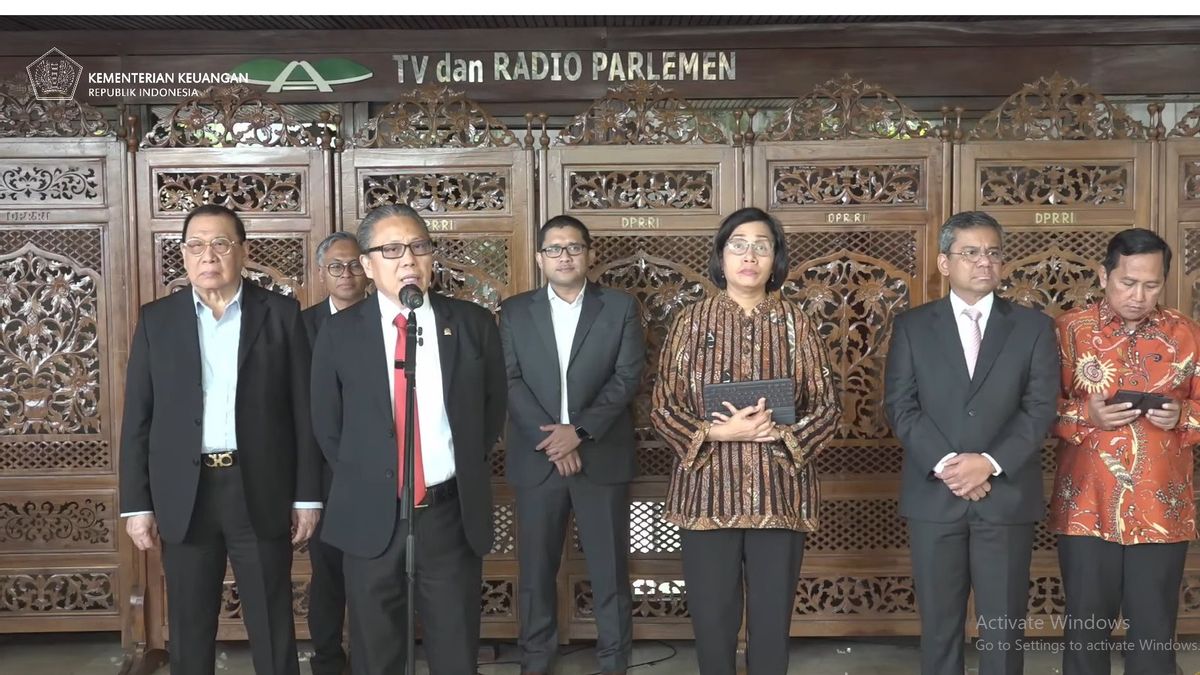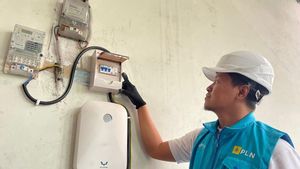Member of Commission XI of the DPR, Dolfie Othniel Frederic Palit, said that the presence of the Financial Sector Development and Strengthening Law (UU P2SK) further emphasized the position of a number of financial regulators in Indonesia to become more independent.
This was conveyed by Dolfie when holding a press conference after the ratification of the P2SK Bill became law at the Senayan Parliament Complex, Jakarta today.
"In this law, we emphasize that Bank Indonesia (BI), the Financial Services Authority (OJK), and the Deposit Insurance Corporation (LPS), that candidates for board members of the commissioner/gubernur do not come from party members and party administrators," he said on Thursday, December 15.
According to Dolfie, the provisions in the P2SK Law are even considered to strengthen the structure of BI, OJK, and LPS independence. The reason is, someone who wants to nominate himself as a member of the board of commissioners/gubernur must leave their political attributes.
Similarly, the Minister of Finance (Menkeu) Sri Mulyani welcomed this provision which she considered very important in maintaining the stability of the financial industry as well as keeping away from conflicts of interest.
In the previous law, candidates from political parties may apply to become a board of commissioners/governors. Only after being elected will they be required to resign (resign from political parties). Now to become candidates, they must be separated from political parties," said the Minister of Finance.
"So this is a progress that gives in terms of independence, professionalism in the board of governors and the board of commissioners," he continued.
To note, P2SK consists of 27 chapters and 341 articles containing various provisions. In the first chapter on general provisions. The second chapter on principle, intent and purpose, third chapter on institution, chapter four concerning banking, and chapter five on the capital market.
Then, chapter six of insurance, seventh chapter on joint business insurance, chapter eight concerning guarantee programs, chapter nine concerning guarantees, chapter 10 concerning financing services efforts, chapter 11 concerning the business activities of trillions (gold bank), chapter 12 concerning pension funds.
Chapter 13 concerning cooperatives in the financial services sector, chapter 14 micro financial institutions, chapter 15 concerning financial conglomeration, chapter 16 of technological innovations in the financial sector, chapter 17 concerning the application of sustainable finance, chapter 18 of literacy and financial inclusion, chapter 19 access to microfinance financing.
Then, chapter 20 concerning human resources (HR), chapter 21 of financial system stability, chapter 22 concerning Indonesian Export Financing Agency (LPEI), chapter 23 concerning administrative sanctions, chapter 24 concerning criminal provisions, chapter 25 other provisions, chapter 26 transitional provisions, and chapter 27 concerning covering provisions.
The English, Chinese, Japanese, Arabic, and French versions are automatically generated by the AI. So there may still be inaccuracies in translating, please always see Indonesian as our main language. (system supported by DigitalSiber.id)













